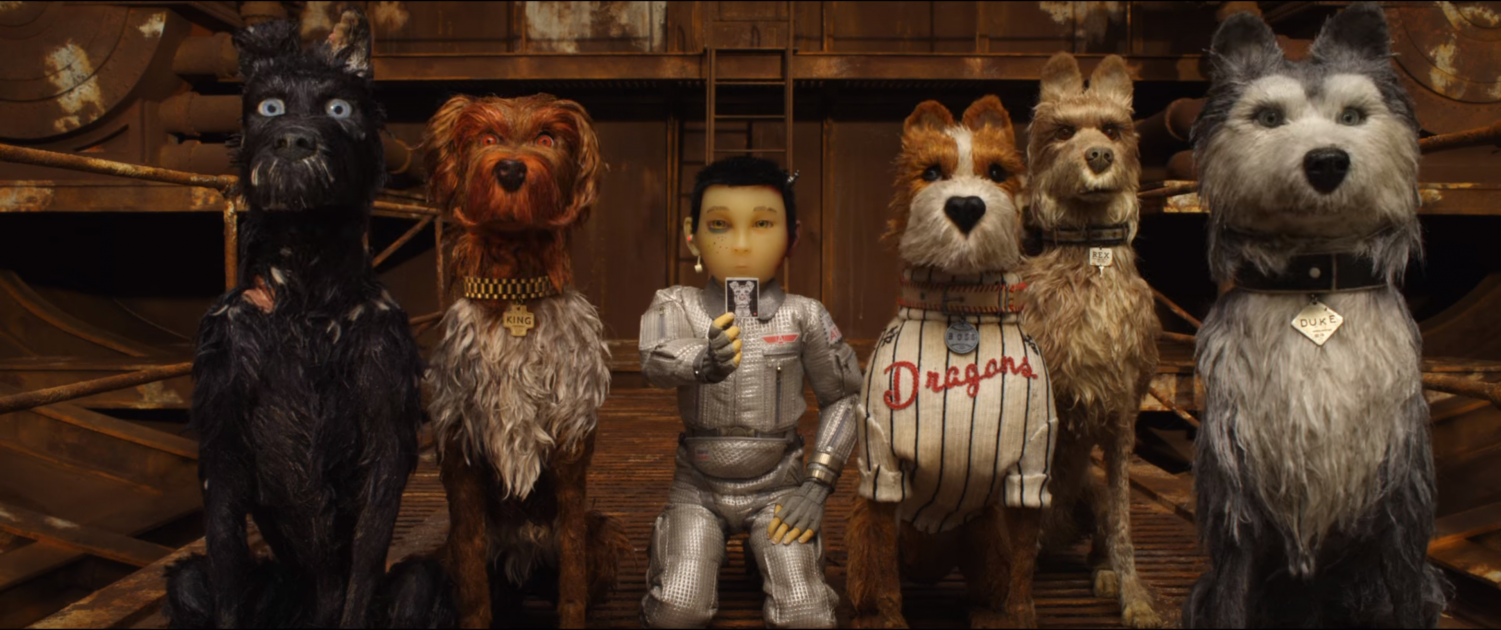
Legend says that if you reach deep enough into the inside pocket of Danny’s leather jacket, past the hordes of pens and six-sided dice moping dejectedly,...

April 16, 2018
“Isle of Dogs,” Wes Anderson’s ninth feature film and second animated movie adds another charming, entertaining tale to the auteur’s oeuvre, but raises concerns about cultural appropriation in art with an insensitive portrayal of Japanese culture. If you’re interested in a heartfelt story, it’s worth checking it out, even with its flaws.
The movie follows 12-year-old Atari on his search for his dog, Spots, after the mayor of the fictional Japanese city of Megasaki decrees that all dogs be exiled to Trash Island following an epidemic of dog flu. Atari’s arrival on Trash Island instigates a string of incidents: a pack of alpha dogs help the boy find Spots, the mayor tries to recover the boy, high school journalists unpack a government conspiracy. Shoved into a pretty short 101 minutes, the entangled plot works under Anderson because he resolves his arcs and has fun on the way.
“Isle” is definingly Andersonian, with the director’s characteristic idiosyncrasies at play, which makes watching the movie a pleasant, unique experience compared to watching other contemporary movies. Even in an animated film, his camera is inquiring, exploring — it dollies (the camera moves forward, backward, side-to-side) instead of pans or zooms — which helps the audience actively explore the dreamt up world instead of passively see it. Many of his shots are symmetrical and picturesque, with an even but textured palette of grey, white and black binding the movie together. If you’ve watched any of his other movies, you’ll recognize these unconventional choices as textbook Anderson.
Set in his apocalyptic world, Anderson uses Atari’s determination to spotlight hope and humanity, telling an uplifting story by touching on themes about friendship and perseverance. Atari’s love for Spots doesn’t just push the story forward, it’s why the story exists in the first place. But Anderson’s not preachy or overzealous about it, and his tender examination of Atari’s love implicitly asks us if we can be as good as Atari, if we can be better versions of ourselves. (Also, if you say it quickly enough, “isle of dogs” sounds like “I love dogs”).
It’s worth noting that “Isle” is Anderson’s darkest movie to date because the darkness makes Atari’s journey all the more virtuous, even if it’s a little less grounded in reality. In both “Moonrise Kingdom” and “The Grand Budapest Hotel,” Anderson explored the contrast between the purity and innocence of childhood and the moral apathy of the rest of the world, and “Isle” builds on that. But this is not the whimsical, earnest world of “Moonrise Kingdom” where kids run away because they’re in love, nor the optimistic, outlandish one of “The Grand Budapest Hotel” where concierges chase rare paintings left by aristocrats. This is a world where dogs commit suicide with their leashes, where they fight over maggot-infested scraps and where one dog says she “wouldn’t bring puppies into this world.”
Yet Anderson unnecessarily uses Japan as his setting — only one scene where a chef makes sushi really depends on the movie’s location — and in doing so, he cheapens Japanese culture. It’s problematic that he uses big, blocky onscreen Japanese text and verbal Japanese to disorient American viewers, reinforcing the Western tradition of otherizing Asian countries as different and exotic. Also problematic is that Anderson’s ensemble voice cast mainly includes white actors, and how an American transfer student (though voiced by the lovely Greta Gerwig) plays the main role in exposing the government conspiracy, perpetuating Hollywood’s white savior complex (see “La La Land”’s Ryan Gosling taking it on himself to single-handedly save jazz).
Sure, some scenes — like a fight scene between two dog packs early in the movie — pay tribute to legendary director Akira Kurosawa, and Kunichi Nomura (who voices the mayor) helped with the story, but it’s not enough to offset the uneasiness when someone reads a mocking haiku to magically solve all problems.
All told, “Isle”’s entertaining tale of determination should charm you, but its problems in portraying Japanese culture make it less than the best Wes Anderson movie.

Legend says that if you reach deep enough into the inside pocket of Danny’s leather jacket, past the hordes of pens and six-sided dice moping dejectedly,...